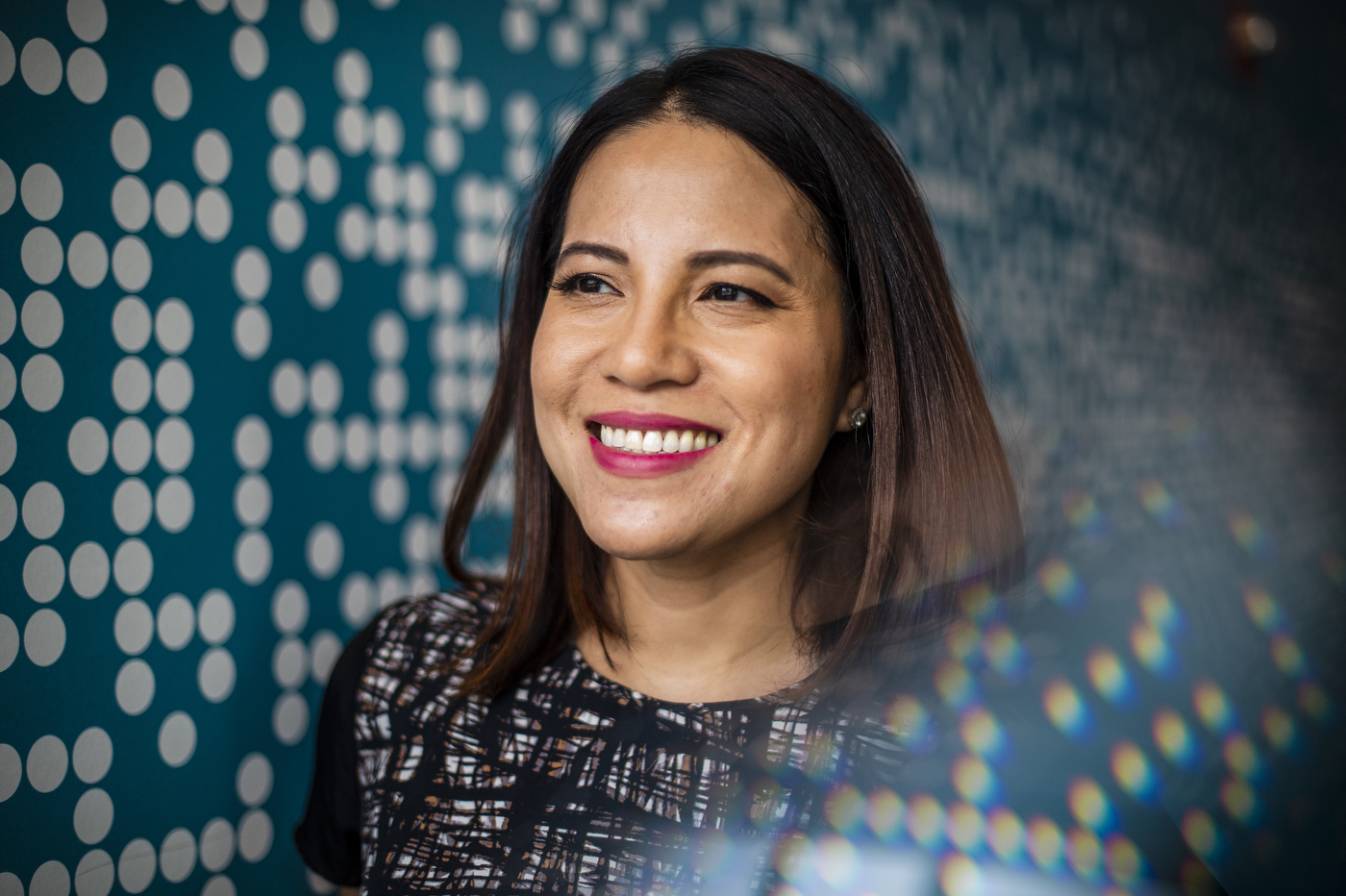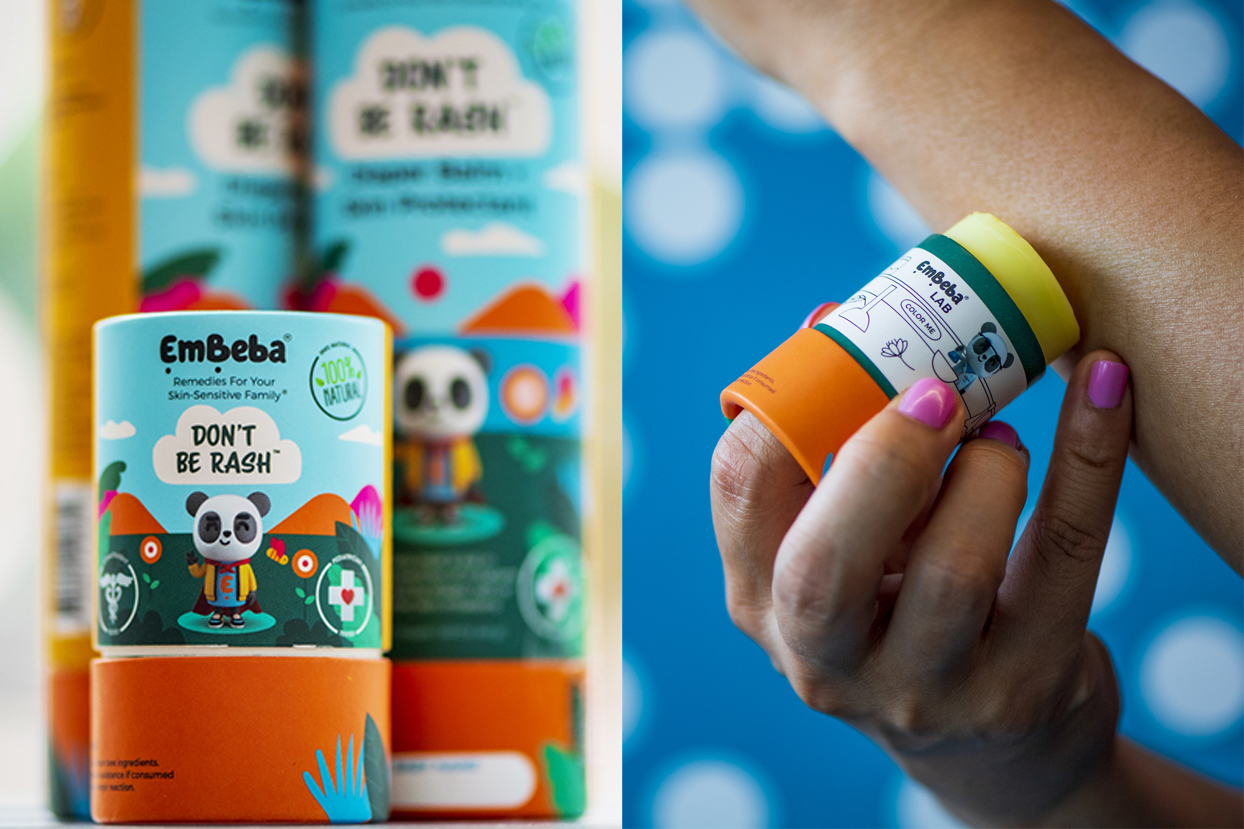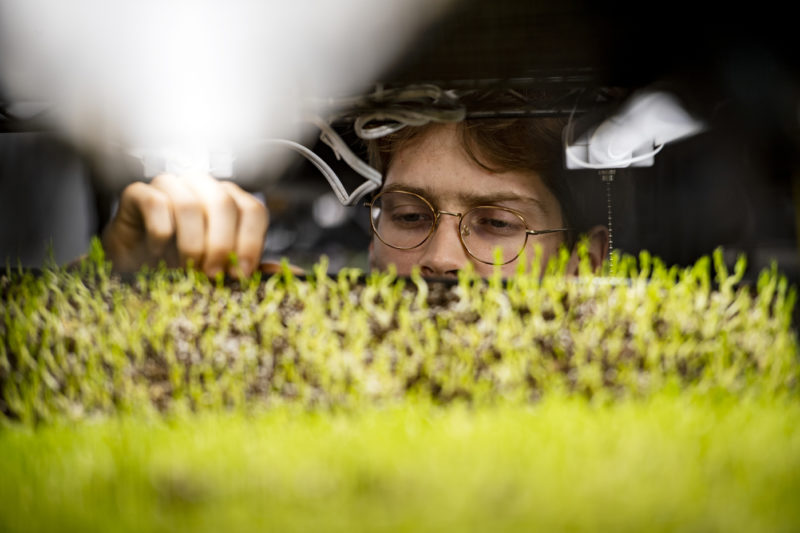Thai-Anh Hoag had been ramping up for a May 2020 launch of EmBeba—her line of family-focused skincare featuring a healing, all-natural baby balm—when she began noticing delays in the product’s sustainable packaging from China.
“We were supposed to start our influencer program in March with an eye towards a full launch in May,” says Hoag, who earned her international business degree from Northeastern in 2006. “I remember telling people about the issues with coronavirus in Asia, and I warned them that we might want to get prepared to see it here.”

Once COVID-19, the disease caused by a specific strain of coronavirus known as SARS-CoV-2, reached the U.S., Hoag’s original rollout plans were wiped out.
“We essentially couldn’t get our inventory out. Everything was on lockdown. We couldn’t even get any ingredients. It just completely disrupted the supply chain in a way I’ve never seen before,” says Hoag, who had been building her sensitive-skin-friendly skincare line behind the scenes for the previous two years.
Both Hoag and her husband contracted the virus last March, yet another setback that she was able to overcome thanks in part to her confidence in her own product.
“My thing was always to do it right, and not to rush the rollout just to get it out there,” she says.

Hoag’s signature product, the “Don’t Be Rash,” diaper balm, was created after she visited family in remote Bolivia. Her infant daughter had diaper rash and an eczema breakout, and the creams Hoag brought from home weren’t helping. The host offered Hoag a homemade, all-natural balm that worked like a charm and inspired EmBeba.
“I wanted something clean and all-natural that borrows healing properties from many cultures,” says Hoag. She plans to release other sensitive skincare products that use healing recipes from Vietnam, Tunisia, and Polynesia.
Her “Don’t Be Rash,” baby balm has calendula extract along with propolis cera, a type of beeswax known for its anti-inflammation and anti-microbial properties. The balm also comes in a recyclable and reusable tube that children can color and use to hold crayons once the product is finished.
“Children just absolutely love the product and it was designed for them. If you think about going down an aisle at a store, most products are not made for kids, they’re made for the adult, the purchaser,” she says.
“Our brand really thought about the ultimate user of the product, so we designed it so that the child can hold on to it, a child can actually apply it by themselves. Babies can play with it because it’s bright, it’s a very sensory experience,” says Hoag.
She had planned to sell EmBeba directly to consumers, following the lead of successful brands like Warby Parker and Glossier, but that market was flooded during COVID-19 as both producers and consumers focused on remote internet sales.
“The pandemic accelerated e-commerce for just about everyone. There were just so many businesses waving their hands to get attention, it was like being in the middle of Times Square during New Year’s Eve,” said Hoag. “It was impossible for a small brand without money to get attention that way.”
Hoag decided to sell through Amazon, a place that would ensure visibility as well as customers who are highly motivated to purchase her product. But the pivot required at least three months of preparation.
“We shifted to Amazon in the last quarter of 2020, and we put a lot of time into that. It takes like three months to do it correctly,” says Hoag. “There’s a lot of rules and many things you have to do in order to be successful listing your product on Amazon. A lot of people don’t realize that.”
The effort paid off, says Hoag. Her diaper balm, launched in January 2021, has received an award from Parent Magazine as well as a National Parenting Product Award for its smooth, all-natural and sensitive-skin-friendly uses.
“With all of these accolades, we’ve been getting so much interest. We weren’t planning to go into retail so soon, but we might be eyeing that,” says Hoag.
For media inquiries, please contact media@northeastern.edu.
"smooth" - Google News
July 27, 2021 at 03:49AM
https://ift.tt/3kZYxL7
How Amazon helped to smooth sales for this baby rash balm entrepreneur in the pandemic economy - News@Northeastern
"smooth" - Google News
https://ift.tt/30JhCVH
Shoes Man Tutorial
Pos News Update
Meme Update
Korean Entertainment News
Japan News Update
Bagikan Berita Ini















0 Response to "How Amazon helped to smooth sales for this baby rash balm entrepreneur in the pandemic economy - News@Northeastern"
Post a Comment